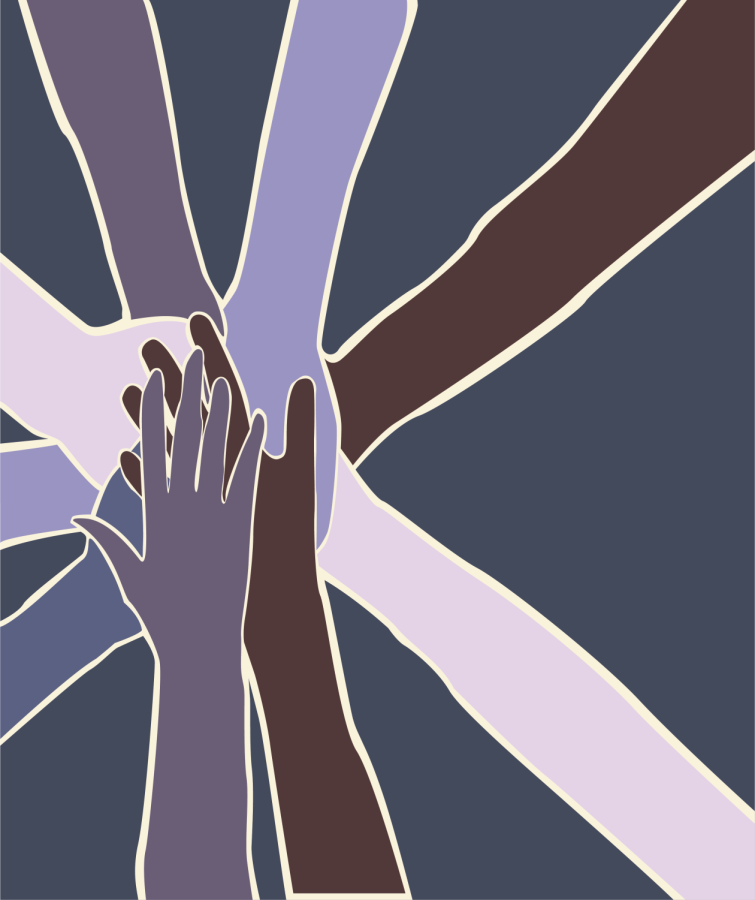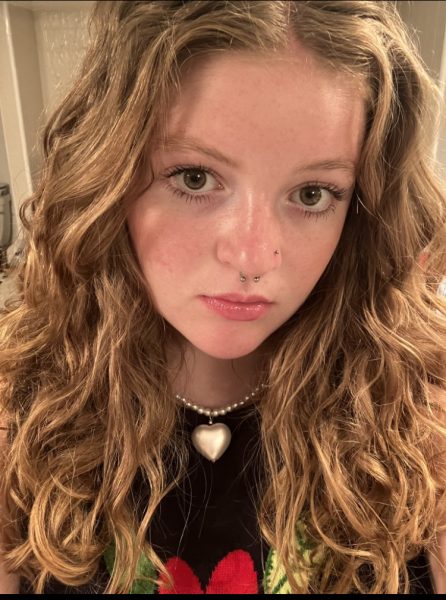The favor economy is a sociological concept best described as transactions between community members that are unpaid and instead reciprocated by future transactions. This economy is formed by the informal giving and receiving of favors rather than the exchange of money.
Most people participate in this regularly. For example, when you ask your roommate for a ride to the airport or if you have ever posted on social media to request information, donations or borrowed items.
However, amidst our ever-expanding gig economy, participating in the favor economy is more powerful than ever. Capitalism drives communities apart because it relies on the idea of a consumer.
This consumer is simply a person who purchases goods and services. Everyone is a consumer.
However, when instead of purchasing goods and services, you borrow or receive them in the form of a gift or a favor, you are no longer operating as a consumer. You are instead operating as a person within a community.
We must choose community over capitalism.
Opt In, Not Out
In today’s world, there are constant alternatives available to opt out of the favor economy. Instead of asking roommates for rides, you can order an Uber. Instead of asking people for information, simply refer to Google. Plenty of services such as these exist in the name of convenience. But this convenience comes at the cost of the community.
Community is defined not by your money or your contribution to the economy. It is defined by your connections with others. This brings people together rather than driving them apart.
The Benjamin Franklin Effect
Small acts of kindness, such as favors, are psychologically proven to foster connection and strengthen bonds. This is because they engage a cognitive bias referred to as the Benjamin Franklin Effect.
The Benjamin Franklin Effect describes the cognitive bias people tend to have toward those whom they have done favors for. This is because your brain associates doing nice things for people with liking people.
This association is so deep that even if you do a nice thing for someone who you don’t like or don’t yet know, your brain demonstrates a strong subconscious bias towards that person.
“If an individual performs a favor for a person about whom he initially has neutral or negative feelings, he may come to like that person as a means of justifying his having performed the favor,” a study states.
Participating in the favor economy, as a result, brings communities closer. Close communities are key to fighting corruption.
Community Over Corporations
Participating in the favor economy is ethical consumption. Today, wealth inequality is an ever-increasing concern, especially for the middle class.
According to a recent Federal Reserve Report, the top 1% of American earners now control more wealth than the nation’s entire middle class. These numbers get more magnified when you look at the top 0.01%.
A 2023 study by Oxfam International reports “A billionaire gained roughly $1.7 million for every $1 of new global wealth earned by a person in the bottom 90 percent.” The report states “Billionaire fortunes have increased by $2.7 billion a day [since 2020]”.
These figures are so large that they are nearly unimaginable by the human mind. To put the meaning of a billion into perspective, a billion seconds only passes every 31.7 years. In comparison, a million seconds is only about 11 days.
When you spend your money contributing to a giant gig economy corporation such as Uber, Doordash, Instacart, Lyft, Care.com and so many others, your wealth is being funneled into the pockets of the top 1% who already have billions of dollars.
In comparison, when you don’t spend any money at all but rather exchange favors, no unethical corporate conglomerate or billionaire is profiting off of you. Instead, your community is profiting off of you in the form of connection and reciprocity.
This is revolutionary. It’s a simple action that directly benefits you and your community members. Corporations do not work in your best interest, but your community does.
Alternative Community Mutual Aid
Having an active place in the favor economy can be difficult. It involves having connections in an increasingly divided world. Many people do not have the privilege of a support system for a multitude of reasons, and many problems are too large to be solved without monetary support or transaction. This is where grassroots programs such as mutual aid come into place.
Mutual aid is an exchange of resources and services between community members for mutual benefit. Common examples of mutual aid include clothing drives, disaster relief and food distributions. Mutual aid overcomes the main challenges implicit in the favor economy, which can be inaccessible because it requires having connections. These funds give people who need help a platform to request and access that help without having to know anyone personally.
The Daily Utah Chronicle spoke with TJ, an organizer for Salt Lake Community Mutual Aid, or SLCMA. This local organization has existed for over four years, beginning during the COVID pandemic when they provided free grocery pick up and drop off for those quarantining.
TJ has been working with SLCMA for two years, and they have many roles from cooking to community outreach.
“I, as a local community member in SLCMA, with many others, help prepare and make food for anyone, namely the unhoused population in Salt Lake City,” TJ said. “I take great pride in the meals I make. When I’m not preparing or cooking meals, I help network with other community members and organizations.”
TJ defines mutual aid as assistance for those who can benefit the most from it.
“The general concept is simple: if someone needs something, we give what we can,” TJ said. “We all need things, and we all have things we could give. Mutual aid is for everyone.”
This mindset of inclusion and insistence on being something that is for everyone is what differentiates mutual aid from traditional charity and philanthropy.
“While governments and traditional charities do provide valuable aid and should continue to do so as they’re able, we believe that individuals and communities know their needs best, and with proper means can also address and fulfill their needs themselves on their terms,” TJ said.
SLCMA is entirely funded by community members through donations of both time and money which they use to create exceptional programs such as community fridges and their actually free market.
Mutual aid is the future. Our first step towards community and away from capitalism starts with our participation in the favor economy.





Noah • Sep 8, 2024 at 1:03 pm
The Benjamin Franklin Effect is profound. Maybe in the past small communities liked each other because they shared more in common, but maybe they also liked each other because of favors. It’s almost like even if we don’t agree of share the same values with people around us, we create social cohesion because our brains subconsciously gaslight themselves to justify the favor. That’s a beautiful way to get a diverse of people to get along; although, that could come with a risk of liking horrible people. Maybe we should all reach out to neighbors more often and do something nice for them.